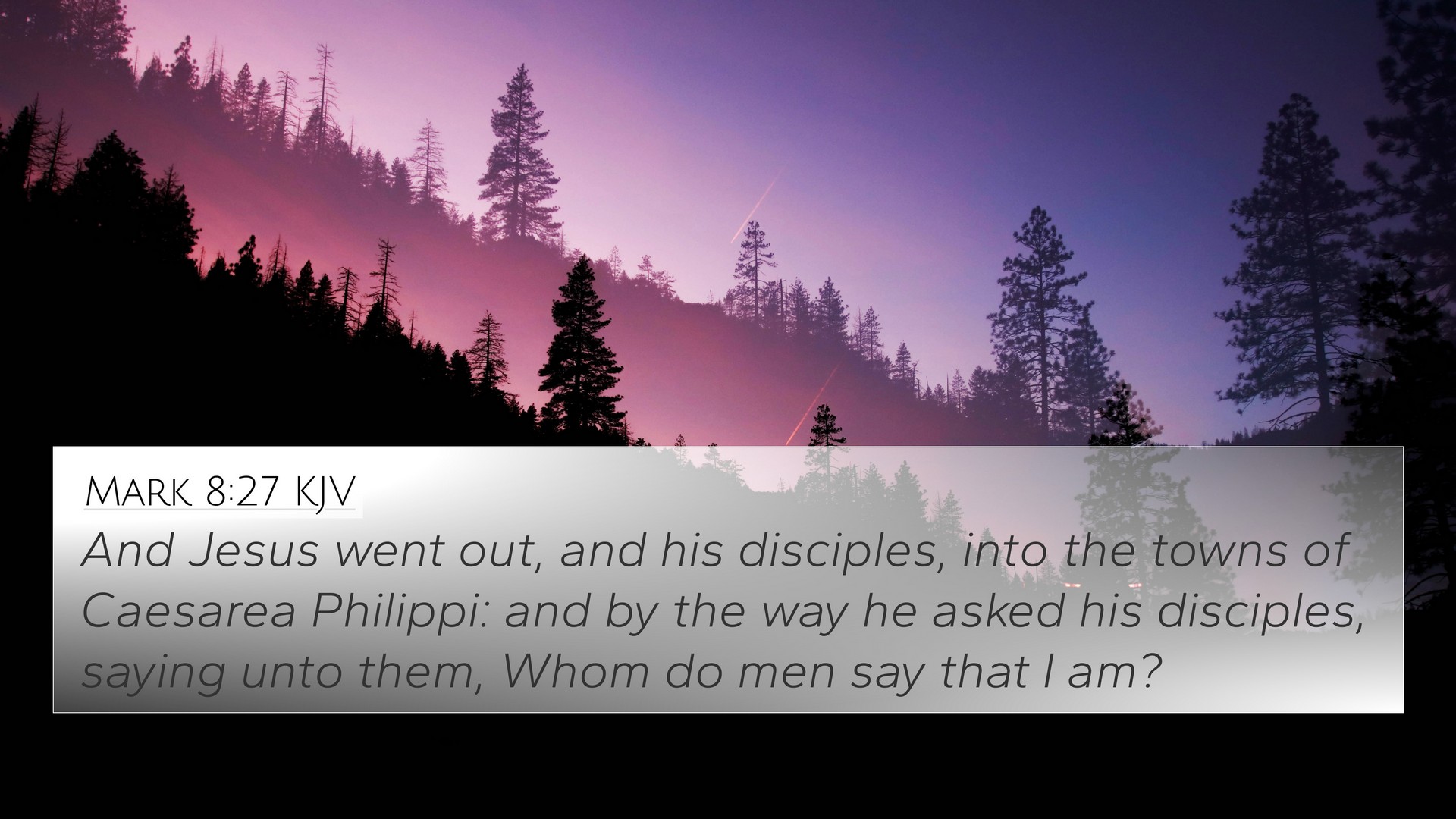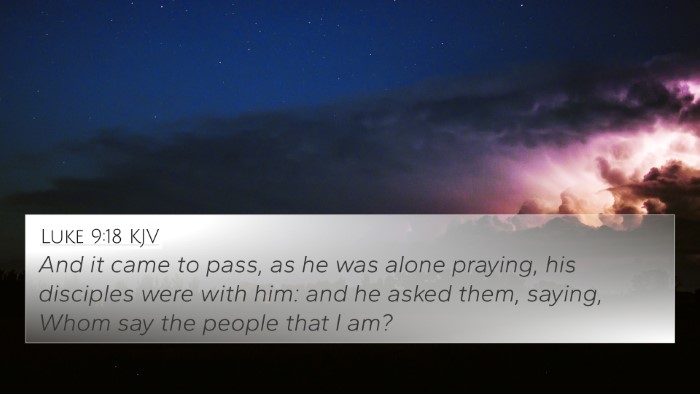Understanding Mark 8:27
Mark 8:27 states: "And Jesus went out, and his disciples, into the towns of Caesarea Philippi: and by the way he asked his disciples, saying unto them, Whom do men say that I am?" This verse marks a pivotal moment in the Gospel of Mark where Jesus probes the understanding and beliefs of his disciples concerning his identity.
Context and Setting
As Jesus travels with his disciples to Caesarea Philippi, he engages them in a profound discussion about perceptions of his identity. This geographical location is significant; it was a place known for idolatry and a mixture of various beliefs, symbolizing the contrasting views about spiritual truth.
Commentary Insights
-
Matthew Henry's Commentary:
Henry emphasizes the importance of self-examination and understanding when it comes to following Christ. He points out that the question Jesus asked is not just for the disciples but for all believers, prompting them to consider who Jesus is in their own lives.
-
Albert Barnes' Notes:
Barnes highlights that Jesus’ inquiry serves to uncover the popular opinions of the people regarding his Messiahship. He notes the various responses from the disciples reflect distorted perceptions that do not fully acknowledge Jesus as the Christ, which prepares the ground for a deeper revelation.
-
Adam Clarke's Commentary:
Clarke comments on the strategic nature of this question, as it leads to a more significant declaration of faith. He suggests that understanding who Jesus is lies at the heart of faith and discipleship.
Key Themes and Lessons
This verse touches on various crucial themes:
- Identifying Jesus' Identity: A fundamental question that remains relevant in Christian faith; understanding who Jesus is forms the foundation of belief.
- Discipleship and Faith: The responses of the disciples highlight the journey of faith in grasping the truth of Jesus’ nature and mission.
- Public Perception vs. Personal Revelation: The contrast between what people say and who Jesus reveals himself to be is a theme that runs throughout the Gospels.
Cross-References and Related Verses
To fully grasp the implications of Mark 8:27, several biblical cross-references can be examined:
- Matthew 16:13-16: This passage records Peter's confession of Christ, echoing the inquiry about Jesus' identity.
- Luke 9:18-20: Similar to Mark, this account of the discussion on the identity of Jesus reinforces the importance of personal conviction.
- John 1:19-23: Here, the question of Jesus' identity is raised in light of John the Baptist’s testimony.
- Isaiah 9:6: Prophecy concerning the Messiah, providing context to the discussion about who Jesus is.
- John 6:67-69: This passage explores the disciples' acknowledgment of Jesus as the Holy One of God.
- Matthew 3:16-17: The baptism of Jesus reveals a divine affirmation of His identity as the Son of God.
- Mark 1:1: The opening of Mark establishes the identity of Jesus as the Christ, setting the stage for the understanding sought in Mark 8:27.
Thematic Connections
This inquiry by Jesus into his identity invites a comparison with several thematic Bible verse connections:
- The Messiahship of Jesus: Connecting various passages that address the prophecy and nature of the Messiah, linking the Old Testament prophecies to New Testament fulfillments.
- Faith in Christ: Exploring how faith in Christ manifests through the recognition of His divine identity across multiple scriptures.
- Doubt and Confession: Analyzing the tension that exists between societal expectations and the truth revealed in faith.
Tools for Bible Cross-Referencing
For those interested in further study, various tools for Bible cross-referencing can enhance understanding:
- Bible Concordance: A tool that lists words found in the Bible and their contexts, aiding in cross-referencing.
- Bible Cross-Reference Guide: Resources that provide links between related scriptures based on themes or topics.
- Cross-Reference Bible Study: Engaging with different passages that impact interpretation and comprehension of particular verses.
Conclusion
Mark 8:27 serves as a significant moment within the Gospel, challenging readers to confront the identity of Jesus and the implications of that identity in their faith journey. By exploring various commentaries and cross-references, one can uncover deeper meanings and connections, enriching one's understanding of scripture as a whole. This discussion reflects the broader Bible verse analytical methods that aim to reveal the interconnectivity of biblical texts.




